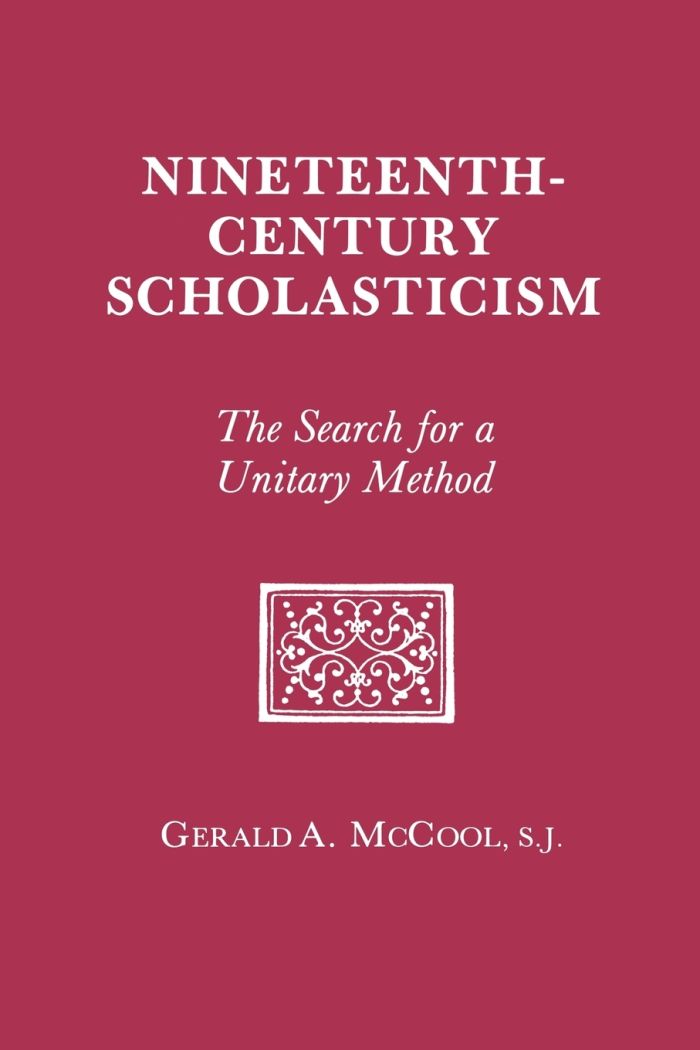Nineteenth Century Scholasticism
The Search for a Unitary Method
Paperback / softback
ISBN: 9780823212576
Published: 01 January 1999
$44.00

Fordham University Press
Nineteenth-Century Scholasticism provides a careful historical account of the scholastic polemic against the "new" Catholic philosophies and theologies that arose in Europe throughout the 19th century. This read begins with an examination of Ontologism, Traditionalism, and the theologies of Hermes, Gunther, and the Tubingen School - the adversaries against whom the scholastics directed their fire - and then transitions to review the philosophies and theologies of Liberatore and Kleutgen, the scholastic theoreticians who orchestrated the polemic. From the account of its polemic with rival theologians, a vivid picture of nineteenth-century scholasticism's vision of itself as the one philosophy capable of structuring a Catholic theology, its adversary relationship to other theologies, and its confidence in its own ability to integrate Catholic culture and solve contemporary social problems emerges.
. . . serious students of contemporary Catholic theology will welcome this important background study.—Library Journal
The publication of this book is an event for Catholic theology because it marks the appearance of a major study in English and Roman Catholic theology in Europe in the 19th century…McCool’s book…offers much material on this century and a systematic approach to it.—America
Gerald A. McCool S.J. was a Professor of Philosophy at Fordham University, and served as the department chair from 1977 to 1981. He taught theology in Fordham’s Graduate School of Arts and Sciences from 1995 to 1997. During his time at Fordham he served on the Executive Committee of the Philosophy Department, the Board of Directors of Jesuits of Fordham, and the Fordham University Faculty Senate. His publications include, The Neo-Thomists, Person and Being, and The Ambrosian Origin of St. Augustine’s Theology of the Image of God in Man.

